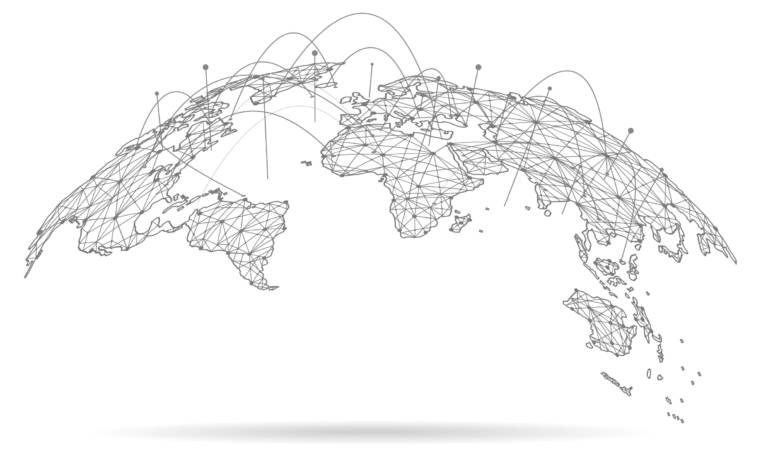Finest Practices for Preparing Effective Letters Rogatory for Legal Matters
Finest Practices for Preparing Effective Letters Rogatory for Legal Matters
Blog Article
The Duty of Letters Rogatory in International Regulation: Trick Insights
Letters rogatory offer as a pivotal instrument in international legislation, facilitating cross-border lawful support by allowing territories to officially request evidence and activities from one another. What effects might these obstacles have for future legal proceedings?
Definition of Letters Rogatory
In the world of global legislation, letters rogatory act as formal requests provided by a court in one territory to seek assistance from a court in one more jurisdiction. Letters rogatory. These requests are particularly significant in cross-border lawful process, where the enforcement of a court's order or the gathering of proof may be hindered as a result of administrative restrictions

The procedure usually requires the requesting court to articulate the particular information or activity required from the foreign court, sticking to the lawful methods and conventions developed in between the territories entailed. When released, the letters rogatory are transferred with diplomatic networks, which might include embassies or consular offices, to ensure that the demand is identified and acted upon by the foreign court. In general, letters rogatory exemplify the cooperative structure necessary for reliable worldwide lawful processes.
Historic Context
Although the practice of letters rogatory has ancient origins, its formalization within the structure of worldwide legislation emerged considerably in the 20th century. Historically, such ask for judicial assistance were used in various lawful traditions, including Roman legislation, where they facilitated cross-border participation in legal issues. The principle acquired restored attention with the surge of globalization and the enhancing intricacy of worldwide legal interactions.
The mid-20th century saw the facility of treaties and conventions that looked for to systematize the procedure of letters rogatory. Notably, the 1970 Hague Convention on the Taking of Evidence Abroad in Civil or Industrial Matters gave a structured technique, enhancing the efficacy of these demands - Letters rogatory. This duration noted a shift from casual setups to a more systematic framework, which resolved the challenges positioned by differing nationwide lawful systems
As states came to be extra interdependent, the need for efficient systems to collect proof throughout boundaries emerged, reinforcing the role of letters rogatory in promoting global cooperation. Today, they remain an important tool for getting proof and making certain that justice goes beyond nationwide borders, mirroring the advancing nature of global regulation in feedback to international difficulties.
Process of Issuing Requests
The procedure of releasing letters rogatory typically involves several critical steps designed to ensure that ask for judicial aid are clear, details, and certified with both global and residential legal standards. Initially, a party looking for help needs to prepare a formal request that lays out the pertinent realities of the instance, the relief sought, and the details proof or statement required. This document needs to be crafted with precision to fulfill the lawful requirements of the territory in which it will be sent.
Complying with the preparation of the demand, it is submitted to the proper authority, typically a court or a designated governmental company. This authority evaluates the demand to ensure it abides by legal criteria and procedural standards. As soon as authorized, the demand is transferred to the foreign jurisdiction via polite networks.
Upon invoice, the foreign court evaluates the demand's conformity with its regional regulations and practices (Letters rogatory). If approved, it proceeds to carry out the demand, which may entail the issuance of subpoenas or the collection of evidence. Throughout this process, keeping clear communication between the asking for and receiving jurisdictions is crucial to guarantee effective collaboration and the satisfaction of the demand
Challenges and Limitations
Difficulties and constraints regularly arise in the process of carrying out letters rogatory, usually stemming from differing lawful systems and treatments in between jurisdictions. One significant obstacle is the differing standards of admissibility for evidence, which can result in issues in the approval of documents requested through letters rogatory. Additionally, the lack of uniformity in legal terms and meanings can develop misconceptions, making complex interaction in between courts in various nations.
Moreover, delays are common due to administrative processes, as the request may why not find out more need to pass through multiple layers of legal authorities before it is fulfilled. In some instances, the requested territory might do not have the essential sources or desire to coordinate, better preventing the procedure. Language barriers likewise contribute to difficulties, as precise translation of legal files is important for guaranteeing that the intended message is conveyed without distortion.
Lastly, sovereignty problems might develop, as some states are hesitant to comply with requests that they regard as infringing upon their lawful autonomy. These challenges highlight the intricacies integral in the usage of letters rogatory, requiring greater harmonization and participation amongst worldwide legal systems to boost their efficiency.

Influence On International Cooperation
Acknowledging the relevance of letters rogatory in promoting global participation is crucial, as these requests promote cross-border lawful support and promote joint efforts in civil and criminal matters. By allowing one territory like it to officially ask for help from an additional, letters rogatory develop a structured legal framework that improves the performance of global interaction in between judicial authorities.
Making use of letters rogatory aids to develop common trust and respect amongst countries, which is essential in visit site an increasingly interconnected world. They function as a mechanism not only for collecting proof yet likewise for making sure that lawful processes are supported across borders. This is specifically vital in combating global criminal activity, where the lack of ability to protect collaboration can weaken justice.
Moreover, the reliance on letters rogatory can simplify complicated legal proceedings, reducing hold-ups and uncertainties in international examinations. The step-by-step safeguards intrinsic in this process add to the security of individual rights while helping with cooperation amongst states. Eventually, the impact of letters rogatory on global teamwork highlights their duty as crucial tools in the promo of justice, promoting a collaborative spirit that goes beyond national borders and legal systems.
Final Thought
In conclusion, letters rogatory act as a vital tool in international regulation, helping with cross-border lawful support and participation. In spite of inherent difficulties such as varying bureaucratic hold-ups and lawful requirements, their standard procedures promote trust fund among countries. The continued development of these devices is important for boosting the effectiveness of worldwide lawful processes, eventually cultivating stronger partnership in both criminal and civil matters across territories. The importance of clear interaction in this context can not be overemphasized.
Letters rogatory serve as a pivotal instrument in worldwide legislation, assisting in cross-border lawful help by permitting territories to officially ask for proof and activities from one an additional.The procedure normally needs the asking for court to verbalize the certain information or action needed from the foreign court, adhering to the legal protocols and conventions established in between the territories involved. Historically, such requests for judicial assistance were used in different legal customs, including Roman regulation, where they helped with cross-border teamwork in lawful issues.The procedure of releasing letters rogatory commonly entails numerous important steps developed to guarantee that requests for judicial aid are clear, details, and certified with both global and residential legal standards.In addition, hold-ups are common due to bureaucratic procedures, as the request may require to pass with multiple layers of lawful authorities before it is fulfilled.
Report this page